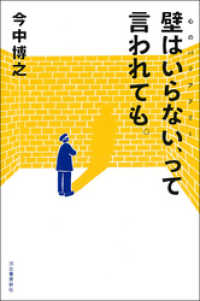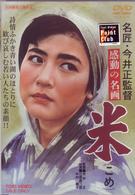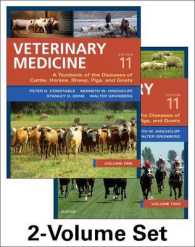- ホーム
- > 洋書
- > 英文書
- > Philosophy
Full Description
In this intellectual biography, critic and philosopher Boris Groys turns to the Arthur Rimbaud of modern bureaucracy, Alexandre Kojève, a philosopher of little-known writings and profound influence. Kojève was fascinated with Hegel's dialectics and with communism and envisioned a universal empire as the end of history. Kojève drew on Buddhism and also proclaimed himself a Stalinist. At the same time, he was one of the creators of a nascent European Union. His concept of the human as something defined by negation and unique among animals in being separated from nature is highly political. It explains why humans can never be fully satisfied by a political system based on their allegedly 'natural' rights.
Groys reveals a Kojève with a unique perspective on our political capacities and human condition.
Contents
Introduction: What does it mean to be human?
I. History as Self-Negation
1. Struggle for Recognition
2. The Self-Reflection
3. The Anthropogenic Desire
II. From Sophia to Stalin and Back
1. Political Androgyny
2. Paradisal Work
3. Napoleon
4. Stalin
5. The Sage
6. The Working State
7. History as Magic
III. The Giving Empire
1. The Christian Empire
2. The Ideocratic State
3. The Latin Empire
4. Colonialism and the Giving Empire
5. Bataille and Marshall Plan
IV. Becoming a Sage
1. Painting the Totality
2. Visualization of Logos
Epilogue: How to remain human after the End of History?
-

- 電子書籍
- 壁はいらない(心のバリアフリー)、って…
-

- DVD
- 米






